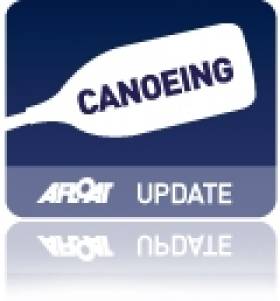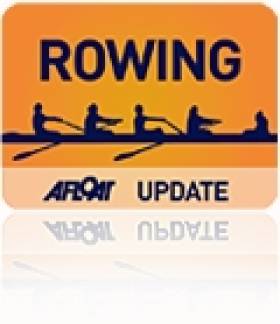Displaying items by tag: Racice
#CANOEING: Pat O’Leary qualified for the final of the KL3 paracanoeing event at the European Sprint Championships in Racice in the Czech Republic today. O’Leary finished second in his heat of the 200 metre event. Barry Watkins and Michael Fitzsimons finished 2.82 seconds behind the winners, Lithuania, in the semi-final of the K2 1,000. This placed the Ireland crew sixth and ended their campaign as only the top three progressed to the final. Jenny Egan finished sixth in both her heat and semi-final of the K1 500. The top three in the semi-final qualified for the final. Egan is set to compete in the B Final.
European Canoe Sprint Championships, Racice, Czech Republic (Selected Results; Irish interest)
Men
K2 1,000 – Heat One (First Three Directly to Final): 7 M Fitzsimons, B Watkins 3:22.036. Semi-Final (First Three to A Final): 6 M Fitzsimons, B Watkins 3 mins 18.868 secs.
Paracanoe, KL3 200 – Heat Two (First Three Directly to Final): 2 P O’Leary 44.208 secs.
Women
K1 500 – Heat Three: 6 J Egan 1:58.704. Semi-Final (First Three to A Final): 6 J Egan (to B Final) 1:55.076.
Hughes 10th Overall at World Junior Champs
Turlough Hughes finished fourth in the B Final of the men’s single sculls at the World Junior Championships in Racice in the Czech Republic this morning. Portugal’s Tome Perdigao won a battle with Serbia’s Alexsandar Filipovic at the head of the field, while Hughes lost out for third to Lithuania’s Zygimantas Galisanskis. The Irishman’s performance gave him 10th overall at the Championships.
Junior World Championships, Racice, Czech Republic. Day Four (Irish interest)
Men’s Single Scull – B Final (Places 7-12): 1 Portugal (T Perdigao) 7:17.15, 2 Serbia (A Filipovic) 7:19.04, 3 Lithuania (Z Galisanskis) 7:19.13, 4 Ireland (T Hughes) 7:20.51, 5 Croatia 7:21.58, 6 Estonia 7:25.10

























































